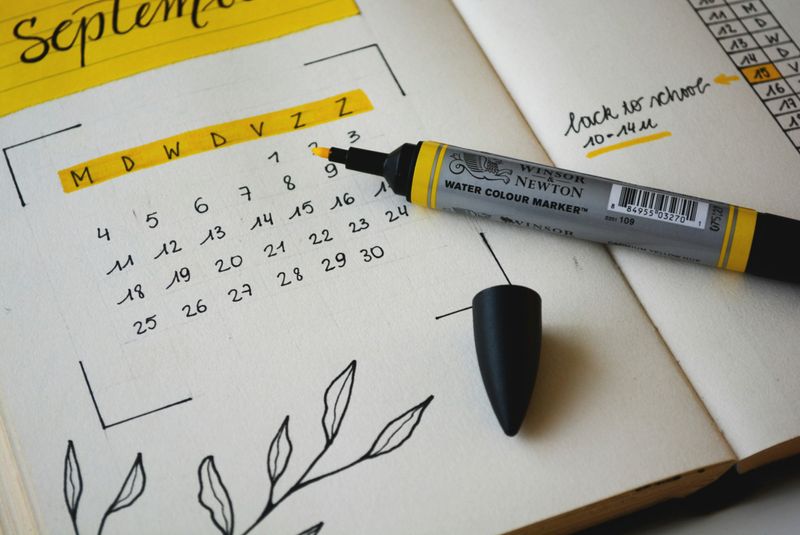Ever wondered how to talk about when something happens in English? You probably use words like yesterday or later all the time without even realizing they're called adverbs of time!

Figure out how to use them like a pro! Learn when to use adverbs of time and where to place them in a sentence, making it easier to express yourself and understand others better.
What are adverbs of time?
Adverbs of time tell you when an action happens. Words like yesterday, today, and tomorrow answer the question, "When?"
Take a look at these time adverbs with example sentences:
I saw John at the park yesterday.
I read a book today.
I will play soccer tomorrow.
 Image by storyset on Freepik
Image by storyset on Freepik
Types of adverbs of time
There are different kinds of adverbs of time, with different reasons to use these adverbs, but they still answer the question, "When?"
yesterday, today, tomorrow: tells you the specific point in time
sometimes, never, always, later: tells you a general idea of time
weekly, every day, twice a month: tells you how often an action happens
all day, for a week, since 2023: tells you for how long an action happens (duration)
Where can I place adverbs of time?
Adverbs of time are flexible. They can move around, allowing you to change the focus or flow of your sentence!
You can find them:
at the end of a sentence: I played soccer yesterday.
at the beginning of a sentence to emphasize the adverb of time: Yesterday, I played soccer. (Use a comma after the adverb when it's at the beginning of a sentence.)

An exception is adverbs of time that tell us how often/frequency. Some of them usually go before the main verb.
For example: I never eat bread. I rarely cook dinner.
But others can go at the beginning, middle, or end!
I often eat bread.
Often, I eat bread.
I eat bread often.
Order of adverbs of time
If you're writing a sentence with more than one adverb of time, pay attention to the order!
how long
how often
when
Examples:
I study (1) for 3 hours (2) every day.
I traveled to Italy (2) monthly (3) last year.
I ate salad (1) for 2 months (3) last year.

Real-life dialogue
Read the dialogue below to see how adverbs of time are used in everyday conversations!

Jane: Yesterday, I went to the library to study. Do you go often?
Ryan: Yeah, I often go to the library to study for 2 hours.
Jane: I try to go every day, but sometimes I skip a day if I'm tired.
Ryan: Yeah, I get that. Yesterday, I didn't study at all because I was tired. So, I'll have to study for 3-4 hours later.
Jane: Oh, I see. Tomorrow, I'll go to the library to study early, so I can rest in the evening.
Quiz
Unscramble this sentence: I / for / yesterday / 3 hours / . / studied
When do I use adverbs of time?
Use adverbs of time to make it clear when something happens.

Ryan: I watched a movie last week.
Jane: That's great! I'll be watching a movie later.
Ryan: Nice! What are you doing right now?
Jane: Just listening to music. Want to join me?

These words give you a hint about the timing of an action.
They can talk about the...
Past: what's already happened = yesterday, last week
Present: what's happening right now = today, now
Future: what's going to happen = tomorrow, later
Using the picture below as an example, you can make different sentences with adverbs of time:
 Photo by Kevin Woblick on Unsplash
Photo by Kevin Woblick on UnsplashI watched a movie yesterday. (past)
Today, I'm watching a movie. (present)
I will watch a movie tomorrow. (future)
Quiz
Which sentence(s) uses the adverb of time correctly?
Take Action
 Photo by Estée Janssens on Unsplash
Photo by Estée Janssens on UnsplashHere are some things you can do to practice with adverbs of time!
Your feedback matters to us.
This Byte helped me better understand the topic.

